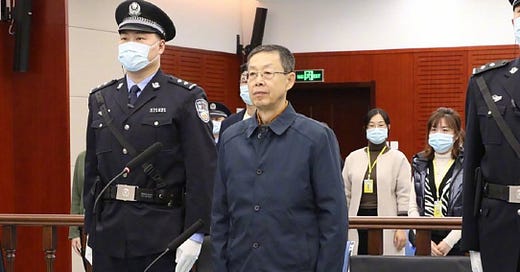Ex-graftbuster's Verdict May Spell Trouble for Chinese Anti-corruption Czar
Dong Hong gets off easier than executed former finance boss
The January 28 “suspended death sentence” of Dong Hong, a former righthand man to Chinese Vice President Wang Qishan, a former head of China’s anti-graft campaign, raises questions on the future of one of the leading figures in Chinese affairs along with President Xi Jinping and Premier Li Keqiang. Wang was named in 2013 with great fanfare to carry out …
Keep reading with a 7-day free trial
Subscribe to Asia Sentinel to keep reading this post and get 7 days of free access to the full post archives.




